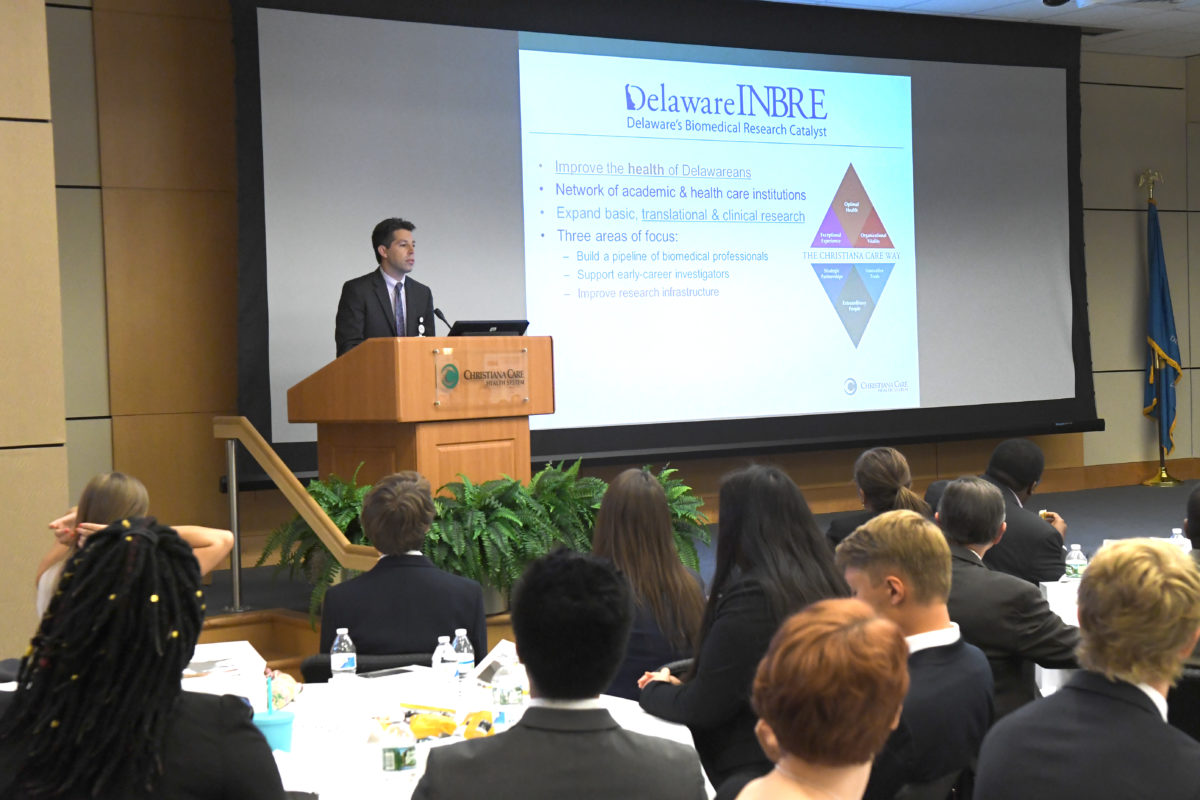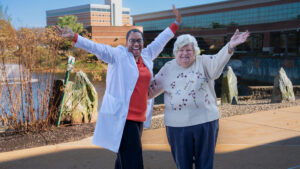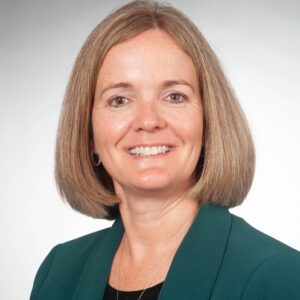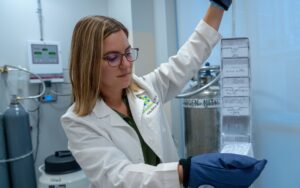Ryan Kowash knew he wanted to be a doctor. Through the skills and insights he gained in an innovative partnership at Christiana Care, he learned that research also should be part of his future.
“Before this program, I had an interest in research, however, I did not see it as being a piece of my career,” said Kowash, a biochemistry and molecular biology major at Dickinson College in Pennsylvania. “But now I hope to combine my work in medicine along with research.”
Kowash is one of 21 Delaware IDeA Network of Biomedical Research Excellence (INBRE) affiliated scholars who assisted their mentors, Christiana Care health professionals, in researching such important topics as team communications in the cardiac catheterization lab and ensuring that outpatients who have uncomplicated seizures receive follow-up care.
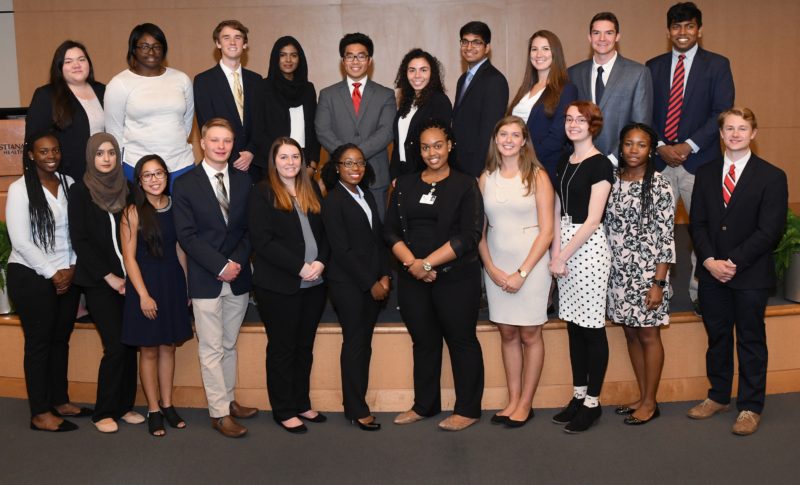
On Aug. 11, the undergrads took part in oral and poster presentations at the 2017 Scholars Research Day & Luncheon at the John H. Ammon Medical Education Center.
The event was the culmination of their work over the summer. The results of the scholars’ research has the potential to be published and make an important impact on care, said Delaware INBRE site principal investigator Scott Siegel, Ph.D., who is also Director of Population Health Psychology with the Office of Transformation at Christiana Care.
“We have a whole range of projects that are clinical in nature,” Dr. Siegel said. “The types of research that these students and their mentors are doing are completely in line with our core mission of improving health, using resources wisely and effectively, and always improving our clinical enterprise.”
Reflecting Christiana Care’s values of Excellence and Love, program leaders worked to ensure diversity and inclusion among the scholars to reflect the population of Delaware and under-represented groups. For the first time, the majority of students come from under-represented groups.
“This is probably the strongest group of scholars we have had,” Dr. Siegel said. “We also have great volunteer mentors who are members of our clinical faculty,”
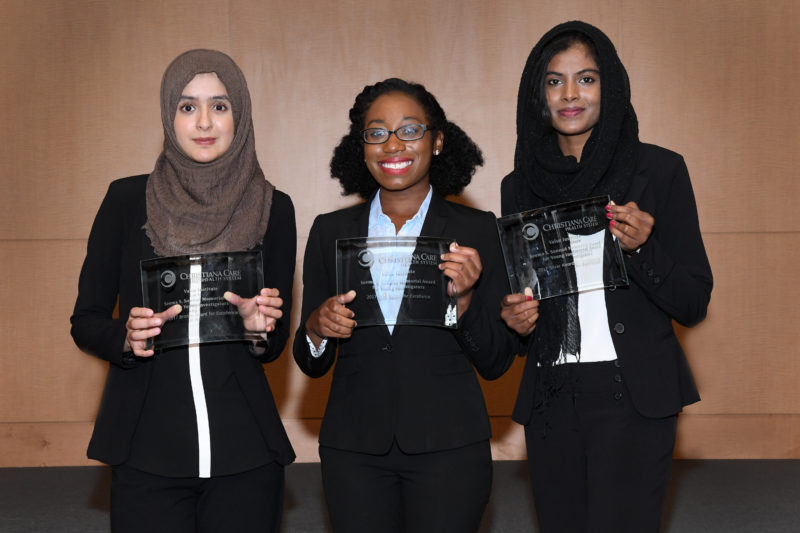
INBRE and The Value Institute collaborate to present the annual luncheon and networking event, where student researchers provide their findings on research topics aimed at improving the delivery of health care in partnership with their Christiana Care mentors.
The summer scholar’s program is funded by INBRE and the Delaware Economic Development Office, said Lauren Pigeon, CPhT, DE INBRE research project manager. Fifteen of the 21 scholars were funded through the INBRE program in collaboration with the Value Institute. Two students participated through the Value Institute’s Harrington Fund Student Summer Research Scholarship. One student was funded through the Seema Sonnad Research Fund. One student was a voluntary research intern, and two students were funded by an INBRE pilot grant.
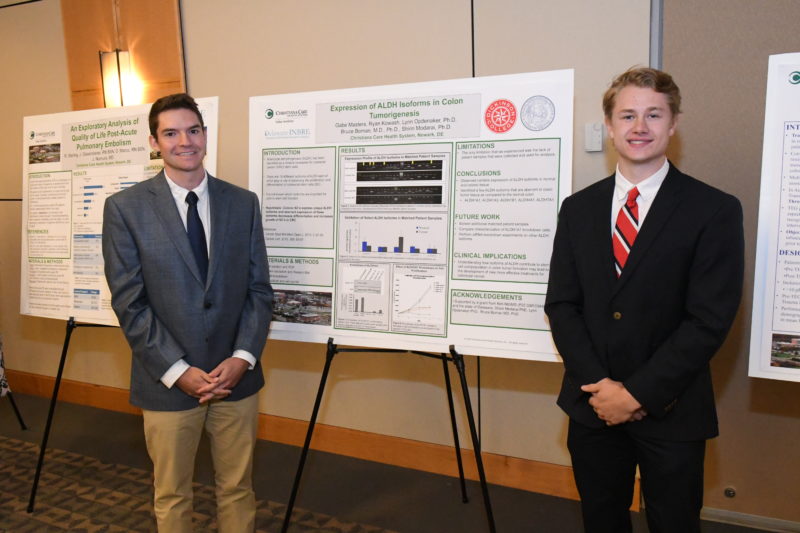
Kowash and Gabe Masters worked with Shirin Modarai, Ph.D., Bruce Boman, M.D., Ph.D., and Lynn Opdenaker, Ph.D., of the Center for Translational Cancer Research at the Helen F. Graham Cancer Center & Research Institute. They studied the impact of various isoforms of a cancer stem cell marker for colon cancer growth.
Masters, a molecular biology major at Hamilton University, was impressed with the opportunity to perform hands-on research. He learned the importance of building a strong relationship between the researchers at the bench and the doctors at the bedside.
“Communicating the findings to others who may not work in a lab setting is critical because not everyone knows the terminology and techniques used in the lab,” he said. “Working with scientists in the lab and meeting with doctors in the clinical setting helped me understand the need for proper communication between these two.”
Kowash experienced firsthand how doctors use research discoveries to develop a plan of care for patients.
“I was able to attend the weekly tumor board at the Graham Cancer Center, as well as shadow physicians,” he said. “My work has taught me just how frustrating research can be but also how rewarding it is when your results, especially as an undergraduate student, do matter.”
Malia Green, a biosciences major at Delaware State University, worked with John Pollard, M.D., a neurologist, on a retrospective study analyzing the impact of a follow-up clinic for patients with uncomplicated seizures who were initially seen in the emergency department.
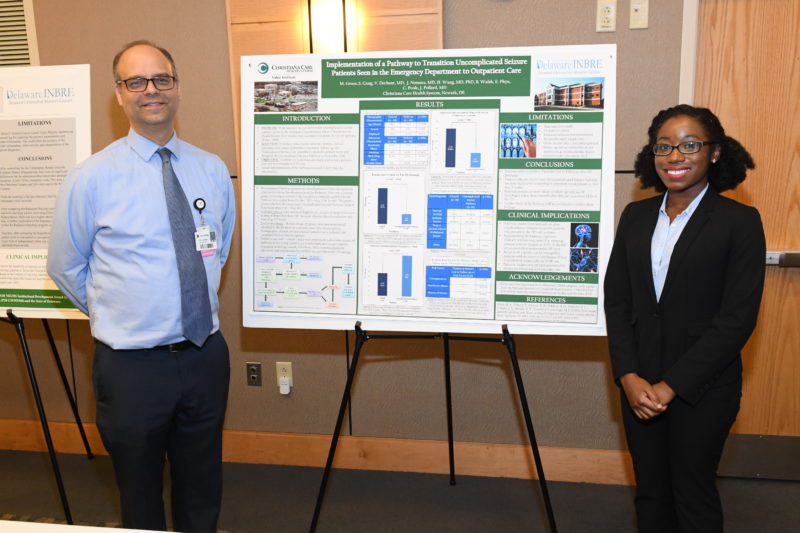
Their analysis showed that patients entered into the Uncomplicated Seizure Clinical Pathway were more likely to follow up with a neurologist, allowing for continuation of care and anti-seizure medication therapy. The clinical pathway could prove useful in other health systems, they concluded. Her abstract, titled “Implementation of a Pathway to Transition Uncomplicated Seizure Patients Seen in the Emergency Department to Outpatient Care,” has been accepted for a poster presentation at the 2017 Annual Meeting of the American Epilepsy Society, to take place Dec. 1-5 in Washington, D.C.
Malia was named the winner of the Seema Sonnad Young Investigators Award. Umma Fatema of the University of Delaware took second-place honors. Merwah Shinwari, also a UD student, was third.
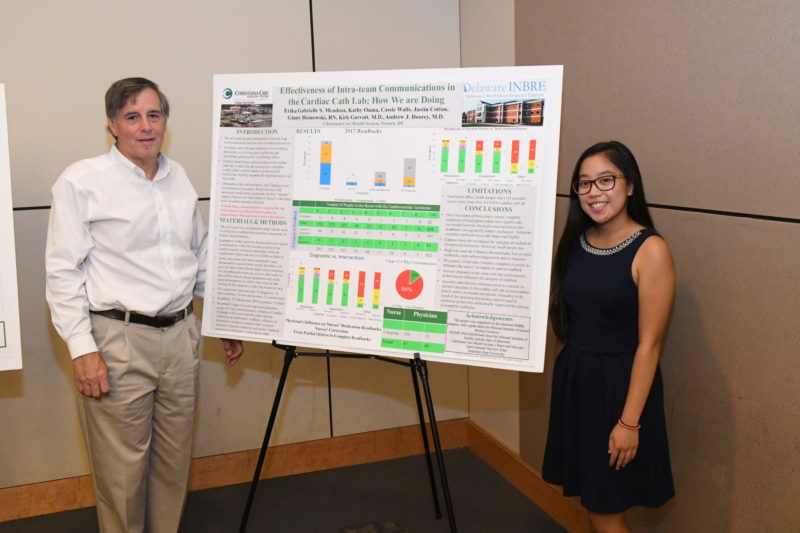
Erika Gabrielle Mendoza’s mentor was interventional cardiologist Andrew Doorey, M.D. She shadowed him and other doctors in the catheterization lab. Their goal was to improve communication between physicians and staff to improve safety, as well as reduce wasted sterile equipment.
“He allowed me to observe all aspects of the cath lab. He let me into heart codes, other complicated PCI (percutaneous coronary intervention) cases, and normal diagnostic cases,” said Mendoza, a biological sciences major at Delaware State. “He also let me see the patients before and after the procedure. Dr. Doorey demonstrated how the stents, balloons, catheters and wires work and why they are used. He also allowed me to grow independently.”
The Delaware INBRE program is funded through the National Institute of General Medical Sciences, part of the U.S. National Institutes of Health. The broad aims of Delaware INBRE are to foster a statewide network of biomedical research, develop individual researchers and research institutions and cultivate biomedical initiatives while enhancing the state’s knowledge base and collaborations within the field.
